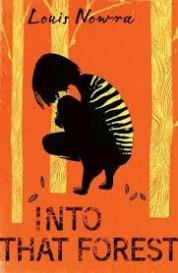
2015. Broadway Books. Paperback. 304 pages.
Recommendation from: books, the universe, and everything
Review:
A little over a year ago, I read Gretchen Rubin’s The Happiness Project. I loved it. It helped me attain a few goals and some of the principles from that book still stick with me. In Better Than Before, Rubin focuses on the mechanics of making and keeping good habits as well as breaking bad habits. Habits are powerful forces that we can harness for good: “how we schedule our days is how we spend our lives.”
As with The Happiness Project, Rubin emphasizes self-knowledge. For the most part, she is not interested in proscribing particular habits to form or break, but is instead explaining methods for accomplishing these goals. And both the habit and the method you choose depends on who you are.
In the beginning, she discusses her theory about the four tendencies people tend to fall into: the Upholders who respond well to inner and outer expectations; the Questioners who respond to expectations only if it makes sense to them, and so do better with inner expecations; the Obligers who find it easier to meet external expectations rather than inner expectations; and Rebels who resist too much expectations of any kind. According to the questionnaire on Rubin’s website, I’m an Obliger, which I felt was sort of true, but not entirely. I am wary of such tidy categorizations, and the concept never really resonated with me like other parts of her book do. (Also, it seemed like most of the book’s strategies wouldn’t work for Rebels, which makes me wonder what would work for Rebels. But being Rebels, maybe they wouldn’t be the type to pick up the book anyway?)
I finished the book a week ago, and the phrases that continue to run through my head are “tomorrow logic” and “we manage what we monitor.” When I picked up this book, I knew exactly what habit I wanted to form. I wanted to be in bed by a certain time on weeknights. I had been fighting against “tomorrow logic” every night, coming up with illogical reasons for staying up later than intended. But a good habit must begin now, not tomorrow. So far, I’ve been keeping to my new bedtime on weeknights. However, this habit is only a week old, and still very vulnerable. That’s where the strategy of monitoring comes in.
Rubin talked about monitoring in The Happiness Project but I didn’t do much to try and incorporate that into my life. This time I was more proactive and I printed out copies of the Daily Time Log from her website, and I have been using them.
One of my favorite chapters was the one about identity, where Rubin discusses how our views of ourselves influence our actions. For example, I’ve long thought of myself as a “night owl” and I think this made my attempts to go to bed earlier harder. I’d be up late, maybe reading something online, justifying it by thinking, well that’s how I am – my brain is just active at night. When instead, I was actually in a wired/tired state (an apt description I’m borrowing from the book). Reading this book made me rethink this “night owl” identification. I thought of the times where I got up early on a Saturday morning and was productive and how good it felt. Maybe there’s a morning person in there somewhere, or at least more of a morning person than I thought. I’m not sure what this new identity is – maybe simply “I’m a person who values sleep”.
I think bad days at work will be the greatest threat to my new bedtime habit. Rubin discusses various tempting loopholes like the Moral Licensing loophole where we give ourselves permission to do something “bad” because we deserve it, or that “this doesn’t count”. I have in the past sacrificed a good night’s sleep because I wanted my free time after work to be longer, to “salvage” the day. I’ll have to come up with ways to soothe a bad day that don’t involve staying up late.
As with Rubin’s The Happiness Project, Better than Before has injected some new vigor into my efforts to make changes that would better my life. She does a great job in articulating the ways we sabotage ourselves, and then also the ways to overcome common obstacles. I appreciate the care that she takes to acknowledge that one size doesn’t fit all and what works for one person make not work for another. I took a number of notes, and could see myself referring back to some of the chapters as I consider other habits to form / break.
I received this book from the Blogging for Books program in exchange for an honest review. (The program allows you to choose a book from a selection of books, so I chose a book I thought would be a good fit for me.)











